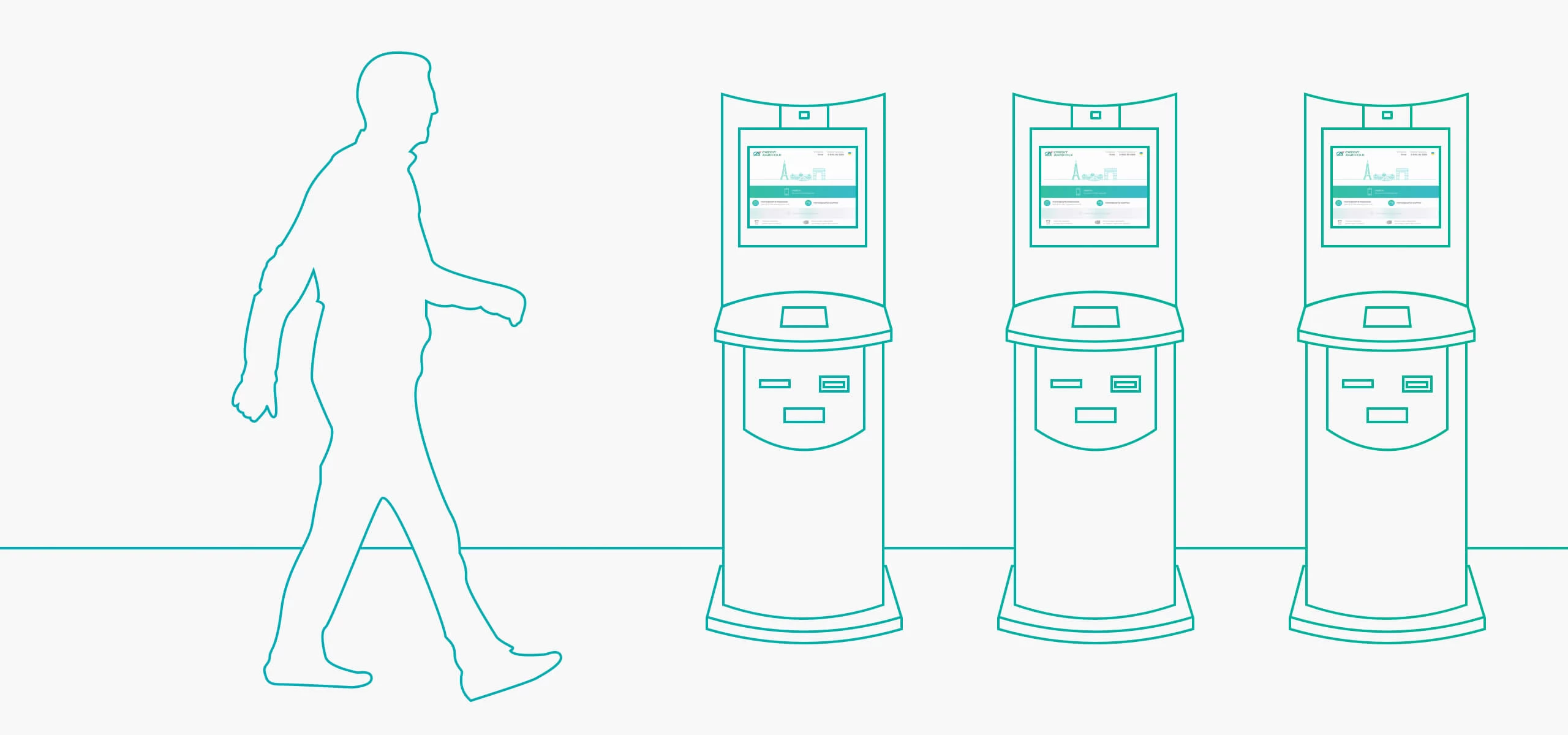
White-label solutions offer fintech companies a streamlined way to develop SaaS applications without starting from scratch. The advantage of this approach is that businesses can concentrate on their key message while avoiding the risks and delays involved in manual development.
In this guide, you’ll learn if white label banking services suits your business, how to choose the best time to start employing it, and the top use cases for it.
At Stfalcon, our expertise includes the scope of the entire fintech pipeline. This consists of the implementation of secure payment services and the control of demanding certification processes. If you want to explore the benefits of white-label software development services for your business, contact us today to hire a dedicated team and embark on your fintech journey!
What is White Label Banking?
White label banking refers to a third party providing ready-made platforms or products to businesses so that they can customize and brand it with their own identity and offer it to their customers. White-labeled fintech solutions utilize their technology, facilitating businesses in rapidly getting into the financial services market with payment processing, account management, or even building a full-fledged virtual bank.
Real-world examples include Monobank, which rides on a white-label layer on the Universal Bank platform. It shows how these solutions can help introduce new types of financial products with best practices, such as NIST 2.0 and OWASP Top 10.
White-label services make it easy for fintech to get to market quickly and affordably. You have yet to roll out entirely and have the opportunity to invest in branding, customer satisfaction, and expansion. Most solutions provide compliance and optionality with an easy onboarding strategy. Some provide the highest levels of security. It allows you to comply with industry standards without extra effort.
Fintech companies are major users of white-label banking apps. Still, white-label apps are in a strong position in the e-commerce, healthcare, and telecom industries by design. These domains build on existing platforms and better serve your clients. Everything is done without additional staff available for software development.
Want a web app that does more?
Let's build a solution that's smart, sleek, and powerful.
Alina
Client Manager

What is the Reason for the Popularity of White-Label Solutions in the Fintech Industry?
The popularity of white-label banking apps in the fintech industry stems from their ability to provide fintech companies with a ready-made solution. It facilitates a swift and cost-effective entry into the banking services market. You can maintain your brand identity while leveraging the expertise of banking professionals.
Several research data points support the rising white label finance trends:
1. According to a report by Research and Markets, the global white-label banking market is projected to grow at a CAGR of 10.6% from 2021 to 2028.
2. According to Grand View Research, the global white label banking market size was valued at $1.6 billion in 2020 and is likely to reach $5.1 billion by 2028.
3. A survey conducted by Finastra in 2020 found that 72% of banking executives surveyed were contemplating offering white-label banking services to other companies.
Factors driving the adoption of best white label banking services
Lower Costs: White-label banking solutions are not at a high development expense for a new banking app.
Faster Market Entry: The tools and platforms allow you to bring white label financial services to market quickly.
Focus on Branding: Your business can invest capital to improve the customer experience and gain customer loyalty.
Regulatory Support: White-label or service compliance modules are the most common. They can assist facilitators in meeting the financial institution's compliance and conditions regulations.
Benefits of a White-Label Digital Bank for Businesses
Cost Savings: Partnering with a white-label digital bank allows businesses to save on the substantial costs of building a banking infrastructure from scratch. By avoiding these expenses, you can allocate their resources more efficiently, focusing on their core competencies.
Faster Time-to-Market: Any white label provider bank enables businesses to launch their financial services more quickly than developing their banking infrastructure. Since the technology has already been developed, the implementation process has become more uncomplicated and quick.
Customizable Branding: They offer businesses the opportunity to customize the branding of their financial services. This level of customization allows you to maintain their unique brand identity and stand out in the competitive market.
Access Financial Expertise: White-label digital banks employ banking experts who possess in-depth knowledge of regulatory and compliance requirements in the industry. By partnering with such banks, businesses can tap into this expertise and ensure that their financial services remain fully compliant with all relevant regulations.
Scalability: The flexibility allows businesses to easily add new products and services as their customer base expands without the need for significant additional investments in infrastructure.
What Businesses Can Benefit from White-Label Banking
White label digital banking solutions can benefit various businesses, from startups to well-established companies. Here are some examples of businesses that can reap the benefits of white-label banking:
Fintech Startups: Fintech startups find white-label banking attractive. Service providers deliver a new-fangled financial offering under the guard of their own brand identity. Without the high cost of this independently, focus capital on innovations and customer interaction.
Small and Medium-sized Businesses: SMBs can utilize white-label banking by delivering institutionally licensed, customized financial services to either customers/employee users. These white label banking solutions are cost-effective. Why? They address specific banking requirements and do not interfere with delivering resources to the core..
Non-Bank Financial Institutions: Payment processors, remittance operators, and mobile wallet service providers can offer white-label banking. This allows them to build a more cohesive white label consumer financing ecosystem, leading to loyalty and satisfaction.
E-commerce Platforms: It is possible to use white label banking software to embed brand-name payment and financial solutions for easy shopping in the online store. This, in turn, provides an ongoing flow of trustable and repeat purchase clients.
Insurance Companies: Insurance companies can use white label digital banking to process premium financing, collection, and claim disbursements. Overall, transactions are facilitated by these abilities. The customer experience is enhanced by making and extending the scope of financial interaction. White-label banking solutions have proven their effectiveness in various sectors. White-label banking examples range from fintech companies offering custom-branded financial products to e-commerce and insurance companies seamlessly integrating financial services into their offerings.
What to Consider When Choosing White-Label Solutions
When considering white-label banking software, businesses should consider several important factors:
Functionality: Take note of the solution allowing your business to operate with the key components. These include account management, effective payment processing, and fraud prevention. For example, telecommunication software such as certified gateways during software implementation. Also, Serpant significantly improves access to the banking system, as the system performs securely and processes the data through APIs or SDKs
Customization: The degree to which the white label fintech platform can implement branding and interface customization is relevant. Thus, commercial use can tailor the software to its brand image and deliver an improved experience for the end consumer. While meeting the end consumer's specifications.
Integration: The advanced financing solutions are easy to roll up with third-party software, such as payment processing and bookkeeping CRM. For that reason, gateways providing REST-API or SDKs can easily incorporate this flow. Everything is done by addressing security and compliance within the checkout context. Therefore, white label business finance system provides an effortless means to communicate across your entire business.
Compliance: Regulatory compliance is non-negotiable. The platform must adhere to industry standards such as Know Your Customer, Anti-Money Laundering, and more. Certified gateways can enable these compliance requirements to be borne operationally and efficiently.
Security: Effective security infrastructure will be critical to secure personal customer information. Solutions or strategies that provide security features such as end-to-end encryption, two-factor authentication, and pre-vetted SDKs provide the highest possible security. That’s made by decoupling essential privacy concerns from the user application program interfaces.
Scalability: The white label mobile solution must be scaled according to the growth of the business. To increase the number of transactions/services being provided. Also, it will make the functionalities in the system increasingly complex. Scalable design refers to the nature of the platform. It can grow with the change in business requirements without drastic redesigns.
Support and Maintenance: Continuous, high-quality customer service and frequent software releases are irrespective of often eliminating downtime and successfully addressing problems. A white label banking providers with a history of updates and 24/7 support will be precious in stabilizing operations.
Examples of White Label in Fintech
White label fintech solutions are prevalent. Several notable examples highlight their effectiveness in the industry:
Fintech Neobank
Prominent white label neobanking like N26, Chime, Revolut, and Monzo sell white-label solutions. Such services can be used to build new banking services and functionalities mentioned earlier. All without end-to-end implementation. They are leveraging (white-label) services to conceptualize new banking services from scratch.
ABN Amro and Tink
ABN Amro's new banking app, Grip, is powered by Tink's open white label digital banking platform. This partnership enables non-ABN Amro customers to access and manage five white label digital bank accounts.
Accounting and Payroll Companies
Companies like BDO, Grant Thornton, and PwC are examples of white label banking providers. Financial software vendors like Quickbooks, Visma, and Sage can quickly expand the solution by embedding financial white label financial products into the brand.
It's important to note that even off-the-shelf infrastructure requires configuration. Therefore, businesses should consider selecting the most suitable end-user platform. The same goes for collaborating with a reliable development partner. Of course, if white label digital banking providers want to leverage their capabilities effectively for financial management. White label fintech products have become a key factor in transforming the way companies deliver financial services. These products enable businesses to enhance their brand presence while offering tailored financial solutions that meet the specific needs of their customers.
Custom Development in White Label Software Solutions
Custom application development in white-label banking solutions includes shaping the software to the unique requirements of your business and tailoring it to be more efficient, intuitive, and integrated with other systems. A system of this sort makes your brand unique and allows you to stay current in a dynamic fintech landscape.
Key Benefits
Business Requirement-Oriented Features: Tailored advanced analytics, AI tools, and blockchain-based services are developed to support the latter's business requirements.
Smarter Third-Party Integrations: You can easily enhance your solution with other core services (such as payment gateways, customer relationship management systems, and analytical tools).
Rich User Experience: You can develop a unique, simple-to-use interface that is 100% in line with your brand persona for your customers.
Industry Standard Compliance: Platform regulatory compliance (such as GDPR, KYC/AML compliance, and/or local financial regulations).
Scalable and Flexible: Robust back-end infrastructure to provide business expansion capacity to support traffic and service growth.
Best Practices for Successful White-Label Fintech Project
Successful white-label fintech projects need careful planning and attention to various aspects. Here's a checklist for creating a successful white label mobile banking app:
- Customization: The white-label app must also be designed to be simple to add to your brand. It should be easy to tailor all components, including colors and fonts. To fit your brand's style and help you deliver a personal user experience..
- Features: Describe application characteristics based on target user research. Select and highlight specific features that differentiate the app from the rest. Use the latest technology to optimize the app for function and impact.
- Branding: Keep your brand's style consistent through every touchpoint. Ensure your white label banking app immediately feels like it is from your brand. From aesthetic, tone, and style with your brand message to allow it to cut through in a competitive market.
- Development Costs: Estimate and predict the development cost in a highly structured way. Since white-label applications typically offer only a minimal feature set. Understand the extra costs in customization and integration. This will help you forecast the budget and avoid unforeseen expenses.
- APIs and Integration: List the primary integrations the application would need. This includes payment gateways, web calculators, or digital handwriting services. The app should be easily extensible architecturally.
- Security: Security in fintechs is paramount. Install two-factor authentication and salient advisories throughout the FinTech application and software development cycle. This will safeguard sensitive user data. Review and update security protocols regularly. Such an action will be effective against new threats and compliance demands.
- Support: Establish an efficient and proactive user support system. Capable of quickly responding to users' needs to maintain an uninterrupted user experience. This creates trust among your customers by showing them your concern for continuous support.
- Reselling Complexities: Take care of agreements about reselling or transferring the royalty to the development partner. Identify whether the sale will be on a direct subscription or wholesale. Search for the most appropriate one to achieve a good profit and continuity of business life.
- Affiliations: Outline who will license and sell the white-label core banking software. A company or agent can also be employed to sell the product on a commission basis. A well-defined sales strategy achieves the highest revenue. In this context, utilizing white label digital banking software offers businesses a flexible and scalable solution, enabling them to offer banking services under their own brand without the complexities of developing everything from scratch.
Our Experience
SDK for a crypto wallet based on Kotlin Multiplatform
One of the objectives was to unify business logic and utilize a shared code base across various platforms. To achieve this, we leveraged Kotlin Multiplatform technology, enabling us to implement the same business models, processes, queries, internal data processing, and encryption across all target platforms.
The integration of business logic has resulted in the following benefits:
- Consistent Data Handling: We can now use the same methods to obtain and present data on all platforms, ensuring a unified user experience and consistency.
- Error Handling and Intermediate States: With the unified business logic, we identically handle errors and intermediate states across platforms, enhancing reliability and user understanding.
For instance, high-precision digital values are processed uniformly on both platforms, maintaining accuracy and reliability in data processing. This unification of business logic has significantly streamlined development efforts and improved the overall performance and user experience across different platforms.
Interface design for Credit Agricole payment kiosks
Our team was tasked with designing the interface for Credit Agricole payment kiosks. The primary objective of these kiosks is to reduce queues in bank offices and ease the workload of cashiers. Therefore, the kiosk interface must be exceptionally user-friendly and straightforward, catering to inexperienced users.
The design aims to make the operation of the kiosks as simple as possible, ensuring an effortless experience for all users.
Bottom Line
As you can see, white-label fintech development is highly customizable and adaptable. Such solutions are nice for capitalized neobanks and niche startups. It’s undoubtedly worth implementing white-label software for secure and branded white label financial services. Yet, if you don’t know how to choose the right solution for your project and benefit in the market, feel free to contact us!
As a top-rated IT development company with 15 years of experience, Stfalcon provides the following fintech services:
- Development of White Label Functionality: We can create white label banking as a service functionality from scratch. Our BaaS provider is tailored precisely to your requirements..
- Configuration and Personalization: Our expertise includes configuring and personalizing ready-made white label banking software solutions to match your brand and unique business needs.
- Integration with Existing Solutions: We can easily integrate white label finance solutions with your current projects to ensure smooth operations.
- Professional Technical Support and Maintenance: We offer reliable technical support, maintenance, and on-demand updates to keep your white-label project running efficiently. In addition, our team specializes in developing custom white-label banking platforms, enabling you to offer a seamless, branded digital banking experience to your customers.
FAQs about White Label Solutions for Fintech and Banking Services
Is white labeling different from the other partnership models present in fintech?
White label refers to creating a particular product or service and then selling it with the brand name of another firm. In such situations, however, you can expand operations without building every element. In contrast to an affiliate relationship, co-branding, or outsourcing, white labeling enables you to retain complete control over your brand and how it is experienced by end users while using a pre-built platform to gain white label banking market insights quickly.
For whom is white-label fintech meant?
The advantage of digital banking solutions is that they are generalizable to different business ecosystems. This includes fintech companies, e-retailers, insurance companies, and non-bank financial intermediaries. You can also deliver banking and financial services this way without reinventing the wheel.
How long does implementing a white-label fintech solution take?
Implementation time depends on the customization and integration requirements needed. This goes from a couple of weeks to several months. This stage includes appropriate adjustments, screening, and implementation. They are essential in enabling its proper functioning, especially when working with fintech white label software to ensure seamless integration with your existing systems.

 Read the full case study
Read the full case study
 Read the full case study
Read the full case study


